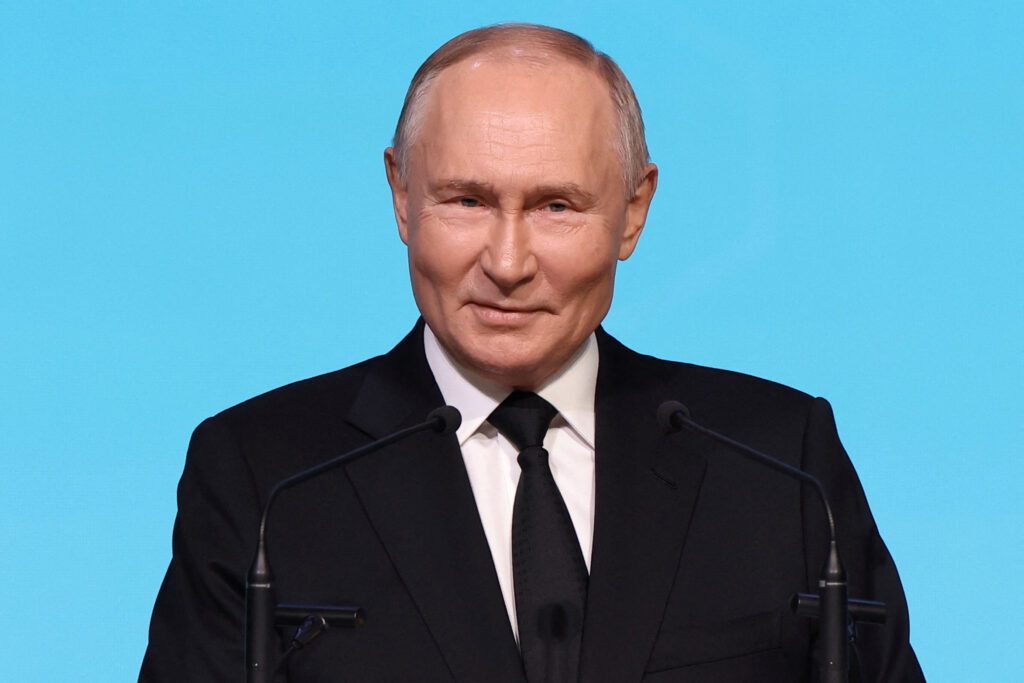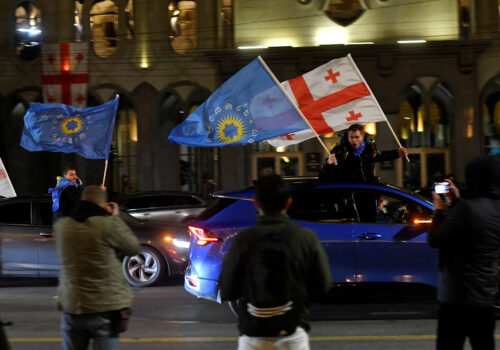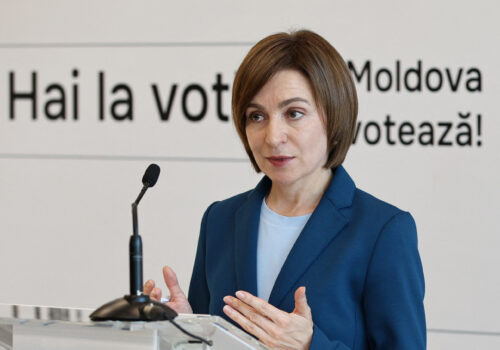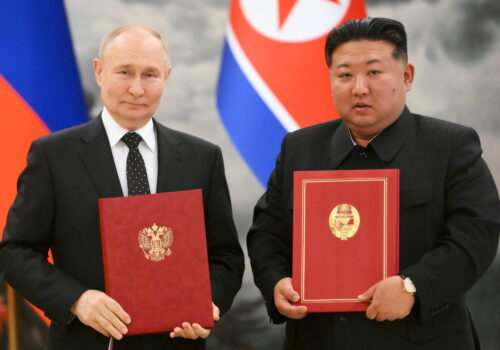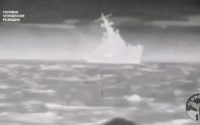Putin is making the most of a distracted and divided United States
Russian President Vladimir Putin is moving on several fronts simultaneously, both military and political, to take advantage of a United States that is distracted and divided ahead of next week’s presidential election.
Putin’s risky move to bring thousands of North Korean soldiers to Russia to fight Ukraine, and his doubling down to push for pro-Kremlin electoral outcomes in Georgia and Moldova, all come as Washington is neither likely to respond in any meaningful way nor rally its allies in a manner that is sufficient for the challenge.
American neglect couldn’t come at a more perilous time. Autocratic aggressors are acting in increasing common cause, particularly through unprecedented defense-industrial cooperation, recognizing a rare chance to reshape the international order to their advantage, with the Biden administration losing steam and the two US presidential candidates focused more on defeating each other than any external foe.
“Western security officials have warned for months of growing cooperation between an ‘axis of adversaries,’ made up of Russia, North Korea, Iran, and China,” writes columnist Gideon Rachman in the Financial Times. “North Korean support for Russia is the most dramatic evidence yet of that axis in action.” Yet it has also been the most disregarded until now.
Rachman warns the West about its mistaken tendency to treat North Korea as an international joke, “a land of ill-fitting suits and bad haircuts that is more likely to launch a comic meme than a nuclear weapon,” rather than as part of a rising threat that is fielding advanced offensive cyber capabilities, had already delivered millions of shells and dozens of ballistic missiles to Russia, and now is providing thousands of its best forces.
“Like [Chinese leader Xi Jinping] and Putin, Kim Jong Un seems to be convinced that the US is in long-term decline,” writes Rachman. “He may sense a historic opportunity to prevail over his enemies, as part of a broader global realignment that Xi has hailed as ‘great changes unseen in a century.’”
Should Kim then turn his attention to aggression against South Korea, Putin many conclude that he owes him one.
New NATO Secretary General Mark Rutte, who only became the Alliance’s top official this month, confirmed this week that North Korean military units have been deployed to Russia’s Kursk region for potential battle with Ukrainian troops, who have seized territory there. Pentagon officials estimate that as many as ten thousand North Korean soldiers have been sent to Russia for military training, among them the country’s elite special forces.
Even as Russia escalates militarily against Ukraine, it has deployed disinformation, influence operations, and money in Moldova and Georgia, working to turn back pro-Western majorities in both countries that favor eventual integration into the European Union (EU) and other Western institutions.
In Moldova, a pro-EU referendum won far more narrowly than anticipated, nevertheless enshrining the goal of joining the EU into the constitution, despite an extensive Russian influence campaign. That said, the pro-Western president, Maia Sandu, will face a runoff against a pro-Kremlin candidate on November 3 due to her failure to cross the 50 percent threshold in the first round.
In Georgia, the Kremlin-friendly Georgian Dream party is defending a declared but disputed victory last weekend against street protests and widespread charges of fraud. On Monday, tens of thousands of Georgians protested outside the nation’s parliament, many draped in EU and Georgian flags, responding to pro-Western President Salome Zourabichvili’s call to annul the “totally falsified” results.
“I do not recognize these elections,” Zourabichvili said. “Recognizing them would be tantamount to legitimizing Russia’s takeover of Georgia.” Describing documented evidence of ballot stuffing, bribery, and voter manipulation, she added, “We cannot surrender our European future for the sake of future generations.”
The Atlantic Council’s Brian Whitmore sees three potential outcomes: a peaceful pro-democracy revolution akin to Georgia’s 2003 Rose Revolution, a violent crackdown and suppression of the democratic opposition with covert Russian assistance, or direct Russian intervention.
“More than two decades after Georgian civil society came of age in the Rose Revolution,” writes Whitmore, “the country is headed for another decisive round. This weekend’s deeply flawed election was just the opening bell.”
Last week, BBC reporter Steve Rosenberg pressed the Russian president on whether his actions over the last two and a half years had increased or decreased security and stability. A defiant Putin launched into a bitter attack against Western institutions. “We want to change this, and we will change it,” he said.
That leaves the United States, Europe, and their allies with a difficult choice, writes Rachman: “Allow Russia to defeat Ukraine with North Korean assistance—and then contemplate the changed security picture in Europe and Asia. Or sharply increase their own support for Ukraine and their willingness to take risks in confronting an axis of adversaries.” For the moment, the greatest peril is US risk aversion in the face of increasing aggression. History hangs in the balance.
Frederick Kempe is president and chief executive officer of the Atlantic Council. You can follow him on X: @FredKempe.
This edition is part of Frederick Kempe’s Inflection Points newsletter, a column of dispatches from a world in transition. To receive this newsletter throughout the week, sign up here.
Further reading
Sun, Oct 27, 2024
Experts React: Georgia just concluded a contested election, with the country’s future at stake. Now what?
Experts react By Atlantic Council experts
After Saturday’s contested election in Georgia, our experts share their thoughts on whether the ruling Georgian Dream party will pull Tbilisi further toward Russia and how the West should respond.
Mon, Oct 21, 2024
Five questions (and expert answers) about Moldova’s elections
New Atlanticist By Atlantic Council experts
Moldova narrowly voted to add the goal of EU membership to its constitution, and pro-Western President Maia Sandu advanced to a runoff. Our experts interpret the results and preview what’s coming next.
Fri, Oct 25, 2024
The North Korea-Russia relationship is blossoming into a common market of autocracies
New Atlanticist By John Park
Moscow and Pyongyang are devising and developing new business practices to supply each other while evading the reach of many US sanctions.
Image: Russian President Vladimir Putin delivers a speech during a plenary session of the 3rd National Healthcare Congress in Moscow, Russia October 29, 2024. Sputnik/Mikhail Sinitsyn/Pool
